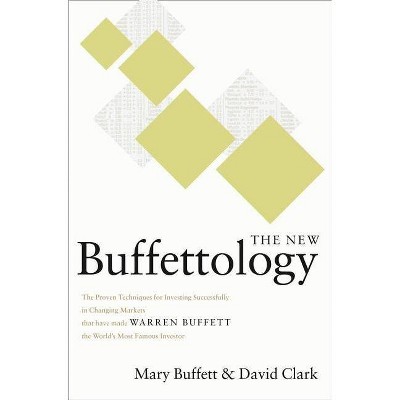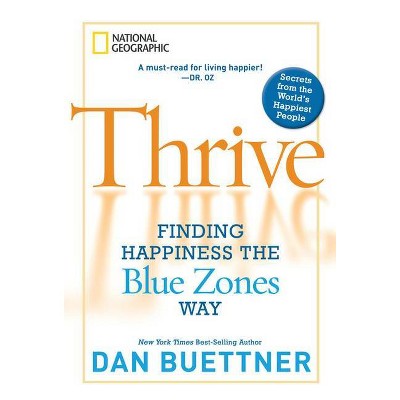Thrive - by Richard Layard & David M Clark (Hardcover)

Similar Products
Products of same category from the store
AllProduct info
<p/><br></br><p><b> About the Book </b></p></br></br>"Original edition first published in the United Kingdom as Thrive: the power of evidence-based psychological therapies, by Penguin Books Ltd, London"--Title page verso.<p/><br></br><p><b> Book Synopsis </b></p></br></br><p><b>A compelling argument for improving society's mental health through increased services and better policy</b> <p/>Mental illness is a leading cause of suffering in the modern world. In sheer numbers, it afflicts at least 20 percent of people in developed countries. It reduces life expectancy as much as smoking does, accounts for nearly half of all disability claims, is behind half of all worker sick days, and affects educational achievement and income. There are effective tools for alleviating mental illness, but most sufferers remain untreated or undertreated. What should be done to change this? In <i>Thrive</i>, Richard Layard and David Clark argue for fresh policy approaches to how we think about and deal with mental illness, and they explore effective solutions to its miseries and injustices. <p/>Layard and Clark show that modern psychological therapies are highly effective and could potentially turn around the lives of millions of people at little or no cost. This is because treating psychological problems generates huge savings on physical health care, as well as massive economic savings through more people working. So psychological therapies would effectively pay for themselves, generating potential savings for nations the world over. Layard and Clark describe how various successful psychological treatments have been developed and explain what works best for whom. They also discuss how mental illness can be prevented through better schools and a better society, and the urgency of doing so. <p/>Illustrating why we cannot afford to ignore the issue of mental illness, <i>Thrive </i>opens the door to new options and possibilities for one of the most serious problems facing us today.</p><p/><br></br><p><b> From the Back Cover </b></p></br></br><p>"Drawing together disparate material, this important book addresses an issue that is not widely known. Psychologists who teach and offer mental health interventions will find the book interesting, and those who are arguing for more mental health services will find it invaluable."<b>--Edward Diener, coauthor of <i>Happiness: Unlocking the Mysteries of Psychological Wealth</i></b></p><p>"This clearly written and accessible book explores an incredibly important issue."<b>--Angus Deaton, author of <i>The Great Escape: Health, Wealth, and the Origins of Inequality</i></b></p><p>"This book is an inspiring success story and a stirring call to further action. Its message is as compelling as it is important: the social costs of mental illness are terribly high and the costs of effective treatments are surprisingly low."<b>--Daniel Kahneman, author of <i>Thinking, Fast and Slow</i></b></p><p>"Extremely easy and pleasurable to read. It's the most comprehensive, humane and generous study of mental illness that I've come across." <b>--Melvyn Bragg, author of <i>The Adventure of English: The Biography of a Language</i></b></p><p>"Remarkable . . . presents the issues in a style that is easy for the professional, the general public, and policymakers to understand."<b>--Aaron T. Beck, emeritus professor, University of Pennsylvania</b></p><p>"Layard and Clark (the Dream Team of British Social Science) make a compelling case for a massive injection of resources into the treatment and prevention of mental illness. This is simply the best book on public policy and mental health ever written."<b>--Martin Seligman, author of <i>Flourish: A Visionary New Understanding of Happiness and Well-being</i></b></p><p/><br></br><p><b> Review Quotes </b></p></br></br><br>A compelling new book.<b>---Martin Wolf, <i>Financial Times</i></b><br><br>If Layard and Clark are right, we seem at last to have found a gentle, nondisruptive and apparently risk-free way of dealing with the worst and most commonplace miseries of the mind. Let's do it.<b>---Bryan Appleyard, <i>Sunday Times</i></b><br><br>Informative, poignant, and accessible to a broad readership. . . . The authors' engaging writing style, selection of topics and content organization make <i>Thrive</i> a great read.<b>---Maura Pilotti, <i>Metapsychology</i></b><br><br>It is hard to argue with their case that the failure to help those in mental distress is an injustice.<b>---Ian Birrell, <i>Observer</i></b><br><br>Layard and Clark . . . hit us with staggering statistics throughout the book, which is comprehensive yet accessible to readers without a background in psychology or psychiatry . . . Economist Richard Layard and clinical psychologist David M. Clark satisfy our craving for data, giving readers hard facts backed by years of research on one of the most neglected areas of medicine.<b>---Resham Gellatly and Aaron T. Beck, <i>Journal of Psychiatric Practice</i></b><br><br>Layard and Clark have written a book that we all need to read, take careful notes on and, where possible, commit to memory.<b>---Charlotte Pennington, <i>Psychologist</i></b><br><br>One of the main obstacles preventing mental illness sufferers from receiving treatment is stigma. <i>Thrive</i> tries to dent this stigma by repeatedly trumpeting the prevalence of the disease while presenting a lodestar for radically improved mental health services that offer sufferers an indispensable ingredient for recovery: hope.<b>---Brendan Daly, <i>Sunday Business Post</i></b><br><br>The argument for change posited by Layard and his co-author . . . is a strong one.<b>---Chris Blackhurst, <i>Independent</i></b><br><br>These champions of cognitive behavioral therapy have done more to turn mental health into practical politics than anyone before.<b>---Polly Toynbee, <i>Guardian</i></b><br><br>This book is nothing less than a sledgehammer to crack open the resting place of the Holy Grail: the Holy Grail of universal human happiness.<b>---Roger Jones, <i>British Journal of General Practice</i></b><br><p/><br></br><p><b> About the Author </b></p></br></br><b>Richard Layard</b> is one of the world's leading labor economists and a member of the House of Lords. He is the author of <i>Happiness: Lessons from a New Science </i>(Penguin), which has been translated into twenty languages. <b>David M. Clark</b> is professor of psychology at the University of Oxford. Layard and Clark were the main drivers behind the UK's Improving Access to Psychological Therapies program.
Price History
Price Archive shows prices from various stores, lets you see history and find the cheapest. There is no actual sale on the website. For all support, inquiry and suggestion messagescommunication@pricearchive.us




















